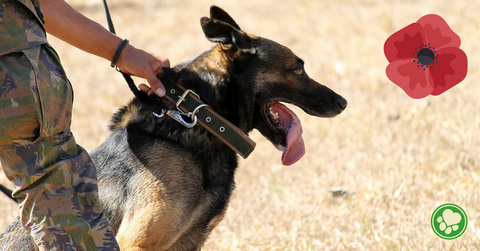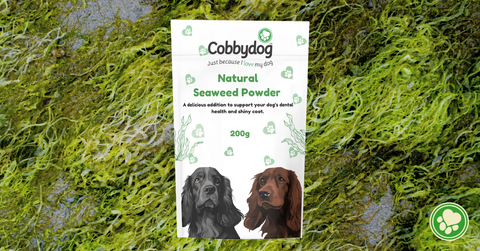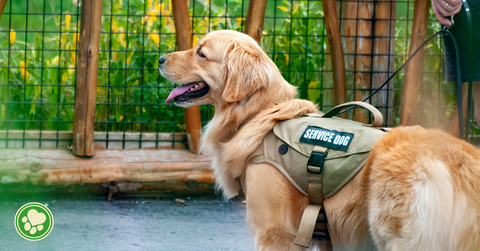Healthy Dog Food for Puppies
20 . June .2024Katy van suilchem0 Comments
If you’re looking for the best dog food for puppies, look no further than Cobbydog. We’re passionate about helping dog owners feel confident about what to feed their puppies so they grow up happy, healthy and strong.
Selecting the right food for a new puppy can be daunting, especially if they have underlying health conditions, allergies, or are simply picky eaters. But fear not! We’re here to recommend some healthy dog food options for your pup and provide advice on giving them the best start in life and supporting their ongoing growth and development.
Preparing for your puppy’s arrival
Before you collect your puppy from the breeder or rescue centre, ask what brand and type of food it is currently being fed. Puppies should be weaned from their mother and eating solid food by eight weeks old.
Reputable breeders or rescue centres should help you out by giving you a few days’ supply of this food to help your puppy transition smoothly.
If you want to switch them on to a different brand of dog food once they’re settled in, here are some top tips.
1. Do it over 7-10 days to avoid causing an upset tummy
2. On day 1, add a small amount of the new food to their current food
3. Slowly introduce more new food and less current food over time.
4. Remember that if you switch your puppy from wet to dry food, they will likely drink more water, so be sure to keep them well-hydrated.
When, where and how much to feed your puppy
We’ll guide you on when, where and how much to feed your puppy for a healthy, balanced lifestyle.
When to feed your puppy
From when you bring your pup home at eight weeks up until they are four months old, it’s best to feed them four times per day. Then, at four months, reduce this to three meals a day and at six months, reduce it to two.
Spacing meals evenly throughout the day helps young dogs establish a good routine. It’s also best to avoid strenuous exercise immediately after eating, as this can lead to vomiting or even bloat.
Consistency is key, so make sure that everyone in the family sticks to whatever routine you choose to help your pup understand the rules and routines surrounding mealtimes.
Where to feed your puppy
Encourage your puppy to eat in a quiet spot free from distractions. This helps your pet calm down before mealtimes and promotes good behaviour. If you have multiple pets, it’s best to separate them during meal times, especially when your puppy is young, to prevent food pinching and ensure everyone gets their fair share!
How much to feed your puppy
Determining the right amount of food for your puppy depends on their breed, size, age, and activity level. It also depends on the type of food you are feeding, e.g., cold-pressed, kibble, or wet dog food.
Many of our products come with a feeding guide, but please feel free to contact us by calling 01535 681 927 or reaching out via Live Chat if you have any questions or concerns about how much to feed your puppy.
How to avoid overfeeding
Pet obesity is a significant issue in the UK, with studies suggesting that around 56% of the nation’s dogs are overweight or obese. This increases the risk of serious conditions like diabetes, heart disease, breathing problems, and cancer.
To ensure your puppy stays healthy, it's important to manage their daily food intake and provide plenty of exercise. Puppies can get pretty excitable at mealtimes (as can we all), but using a kong or puzzle feeder can help slow down speedy eaters, preventing overeating and stomach upset. These tools can also redirect their urge to chew away from furniture, helping keep your puppy calm and occupied.
It’s worth noting that you should try to choose a slow feeder bowl appropriate for your puppy’s level of understanding. If the feeder is too tricky, it can cause frustration and behavioural problems surrounding mealtimes.
What to feed your puppy
Now that we’ve covered when, where and how much to feed your puppy, let’s move on to the nitty gritty. Below, we’ve highlighted the most important nutrients for your puppy and explained how to incorporate them into your young dog’s diet.
Protein
Protein is crucial for puppies as it supports growth, muscle development, immune function, and the production of enzymes and hormones. When choosing proteins for puppies, focus on high-quality sources that are easily digestible and contain essential amino acids.
Chicken is a great choice due to its high protein content and digestibility. Fish is also an easily digestible protein that contains beneficial omega-3 fatty acids. Turkey offers lean protein and is rich in high-quality nutrients. For puppies with sensitivities, options like duck or lamb can also be excellent choices.
Omega-3 and Omega-6 fatty acids
Omega-3 and omega-6 fatty acids have numerous health benefits for puppies. They help maintain skin and coat health, provide anti-inflammatory properties, and promote mobility and joint health.
Omega-3 fatty acids, particularly DHA (docosahexaenoic acid), are essential for brain development and cognitive function in puppies. Omega-3 and omega-6 also support cardiovascular health by reducing inflammation and promoting healthy blood circulation.
To add these fatty acids to your puppy’s diet, consider sources like salmon, linseed (flaxseed), and fish oil supplements.
Nutrient-rich Vegetables
Nutrient-rich vegetables are important for puppies because they provide essential vitamins, minerals, fibre, and antioxidants that support overall health and development.
Carrots offer a low-calorie fibre and vitamin A source, promoting healthy eyes and immune function.
- Sweet potatoes are rich in vitamin A, supporting skin and fur health.
- Pumpkin’s soluble fibre content aids digestion and helps regulate bowel movements.
- Peas are a great source of protein, fibre and vitamins A, C, and K, contributing to balanced nutrition.
- Beets are packed with nutrients like potassium, folate, and magnesium, which benefit coat, skin, and digestion.
Cobbydog Recommends
Our complete dog foods are nutritionally balanced, 100% natural, and gut-friendly, ideal for puppies. They are free from artificial ingredients, ensuring easy digestion and allergen management.
We recommend the following healthy dog foods:
Immunity Impact™ Cold-Pressed Dog Food
For optimal puppy health, consider our Immunity Impact™ range. Immunity Impact™ is a cold-pressed dog food with added plasma. It’s packed with essential vitamins, minerals and amino acids to support your puppy and give them the best start in life.
This range includes options like Fish Supper, Tiny Chops Fish Supper, Duck Dinner and our Meal Topper.
Premium Puppy Kibble
Premium Puppy is also a fantastic choice for weaning puppies. Made with fish and chicken, it’s rich in protein, vitamins, and minerals, and the small-sized kibble is easy for young dogs to eat and digest.
Why not try a sample of Premium Puppy today? We’re confident your little pup will be a big fan!
Chicken & Vegetables Wet Food
We highly recommend our Chicken & Vegetables for Puppies as a wet food option. This high-protein recipe is perfectly suited to meet the needs of all puppies, regardless of breed. Plus, it comes in a handy tray to make mealtimes a breeze!
For more information and advice about healthy dog food for puppies, feel free to contact the Cobbydog team by calling 01535 681 927 or sending us a message via Live Chat. If you have any concerns about your puppy’s nutrition, make sure to speak to a vet.
FAQs
We’ve compiled some of the most commonly asked questions about puppy nutrition.
What is the best food for puppies?
The best foods for puppies are those specifically formulated to meet the nutritional needs of growing dogs. Look for a high-quality, complete puppy food full of proteins, fats, vitamins and minerals. It should be balanced to support healthy development, digestion, and immune function, promoting their overall well-being as they grow.
Should I feed my puppy wet or dry food?
Dry food is more convenient, helps promote dental health, and is typically more cost-effective. Wet food can be more palatable and provide additional moisture, which helps with hydration. A combination of both can offer variety and ensure your puppy receives a balanced diet.
Consulting with your vet will help determine the best choice based on your puppy’s age, breed, and health conditions.
How many times a day should a puppy eat?
From the time you bring your puppy home at eight weeks until it is four months old, feed it four meals a day. At four months, reduce this to three, and when it turns six months old, reduce this again to two meals.
How do I know if I’m feeding my puppy enough?
Puppies need to eat a lot, but it’s important not to overfeed them. You should be able to feel but not see their ribs, and they should have a visible waist when you look down at them from above.
Contact a vet if you have any concerns about your puppy’s weight.
How do I avoid my puppy overeating?
Establish consistent meal times and stick to them to prevent your puppy from overeating. Use slow feeders or kongs to slow down eating, measure out appropriate portions, and avoid leaving food out all day. Discourage feeding from the table, use treats wisely and monitor growth closely.
Contact a vet if you have any concerns about your puppy overeating.









